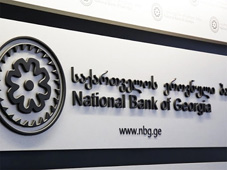
Financial Stability Committee of NBG leaves countercyclical buffer unchanged
By Nika Gamtsemlidze
Monday, March 9
The Financial Stability Committee of the National Bank of Georgia left the countercyclical buffer unchanged at 0%. In December 2019, the annual growth of loans excluding the exchange rate effect amounted to 15.9%, largely due to the increase in loans to legal entities. It should be noted that the ratio of loans to GDP still exceeds the long-term trend, reflecting the effect of high credit growth and exchange rates.
Credit growth is proportional to economic activity and that lending growth contributes to sustainable economic growth and the well-being of the population so that risks to financial stability are not accumulated. Existing credit growth exceeds nominal economic growth by 8 pp. Doing so will lead to the accumulation of risks.
The committee estimates that the increase in the risk of the novel coronavirus may slow down the lending rate, as a result of which the debt-to-GDP ratio will be closer to the long-term trend.
Since the introduction of responsible lending, growth in loans to individuals has slowed and is more in line with revenue growth. In January 2020, the annual growth of lending to households by banks amounted to 10.8%.
Mortgages and loans to individual entrepreneurs have made a significant contribution to the annual growth of lending to households. Lending standards have improved since the beginning of 2019. In particular, the share of mortgages with a service ratio (PTI) of more than 50 percent has declined.
At the same time, the financial resources for financing legal entities have increased. In January 2020, the annual growth of lending to legal entities increased to 22.9 percent, which is 4.6 pp higher than the corresponding period of the previous year.
The National Bank has decided to simplify the regulation of lending to individuals and to strengthen its principles-based approach. This means that lenders will reduce the administrative burden of lending to customers and give them more flexibility in risk management.
The number of income thresholds set for the loan service ratio will reduce. The basic principle of regulation is unchanged, and the lending organization should not impose a financial obligation on the borrower whose service is of considerable financial difficulty to the consumer.
The National Bank of Georgia will continue to monitor the financial stability of the country, assess internal and external risks and will use all available instruments to minimize possible risks, as needed.
The next meeting of the Financial Stability Committee will be held on May 27, 2020.
The National Bank of Georgia (NBG) is the central bank of Georgia. Its status is defined by the Constitution of Georgia. The main objective of the National Bank is to ensure price stability.


